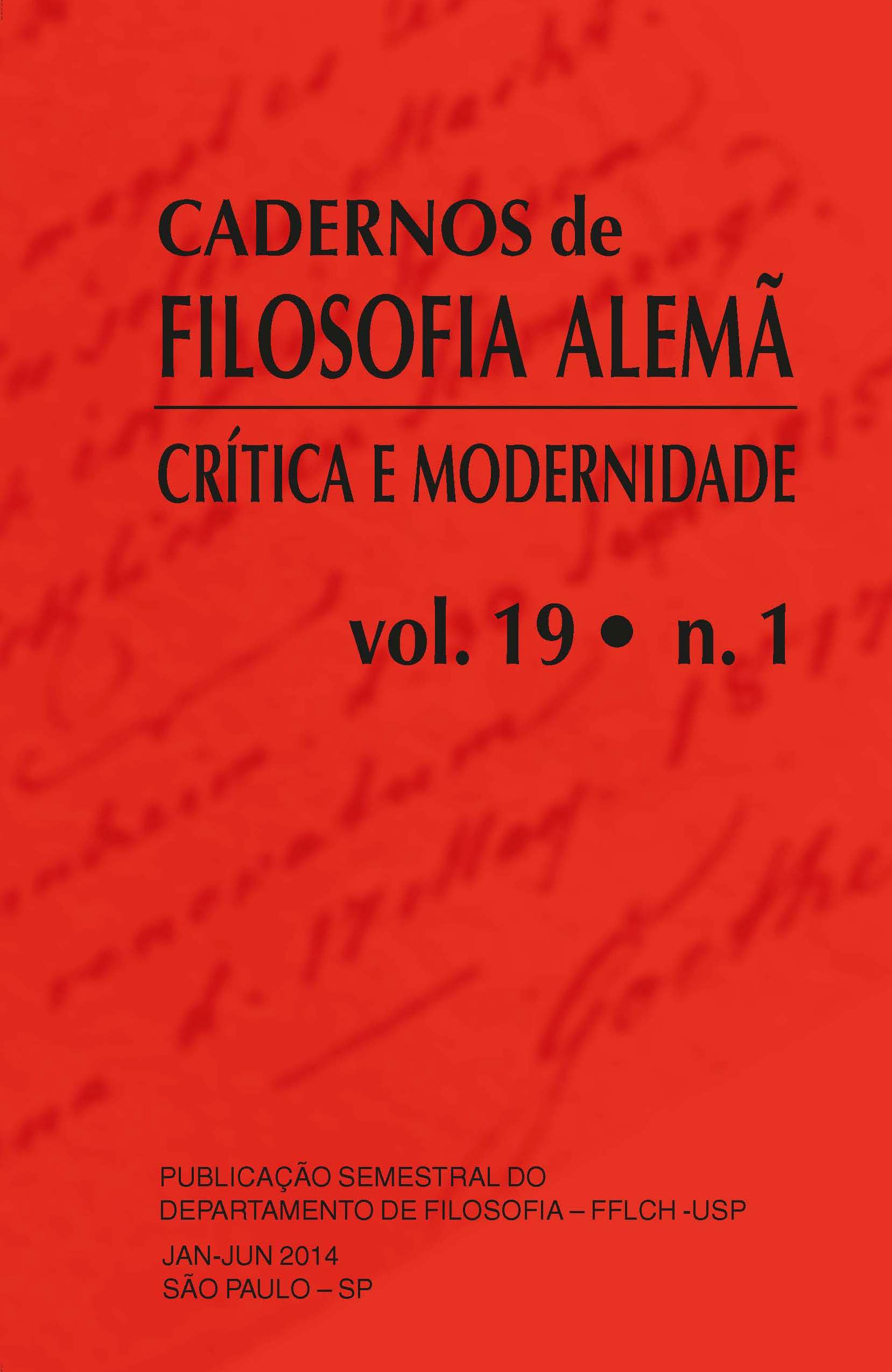The basic structure as the object of justice: basic freedoms and the social bases of self-respect
DOI:
https://doi.org/10.11606/issn.2318-9800.v19i1p63-83Keywords:
Basic structure, Equals liberties, Social basis of self-respect, John RawlsAbstract
The article starts from the assumption that in order to make a diagnosis of injustices, vulnerabilities and needs of people a critical theory of justice must take as its starting point the real position of people in the world, their contexts of socialization and social relations of interdependence. For this, the primary object of a theory of justice should not be individuals and their capabilities, but the basic structure of society, formed by the major social, economic and political institutions, i.e. intersubjective contexts of interpersonal relations of cooperation social and socialization that are determinant to the concrete life of the persons and especially to the realization of equal liberties and to the formation of the internal sense of what it means to be autonomous.
Downloads
References
BANKOVSKY, M. Social justice: defending Rawls’ theory of justice against Honneth’s objections. Philosophy & Social Criticism, v. 37, n. 1, 2011, pp. 95-118.
COHEN, J. Democratic equality. Ethics, v. 99, n. 4, 1989, pp. 727-51.
CROCKER, D. Functioning and capability. The foundations of Sen’s and Nussbaum’s development ethic. Political Theory, v.20, n.4, 1992, pp. 584-611.
EYAL, N. ‘Perhaps the most important primary good’: self-respect and Rawls’s principles of justice. Politics, Philosophy & Economics, v. 4, n. 2, 2005, pp. 195-219.
FORST, R. Kritik der Rechtfertigungsverhältnisse - Perspektiven einer kritischen Theorie der Politik. Frankfurt am Main: Suhrkamp, 2011.
HART, H. L. A. Rawls on liberty and its priority. In: DANIELS, N. (ed.). Reading Rawls. Critical studies of A Theory of Justice. Oxford: Basil Blackwell, 1975, pp. 230-252.
HONNETH, A.; ANDERSON, J. Autonomy, vulnerability, recognition and justice. In: CHRISTMAN, J.; ANDERSON, J. Autonomy and the challenges to liberalism: new essays. Cambridge: Cambridge University Press, 2005, pp. 127-49.
KEAT, R.; MILLER, D. Understading justice. Political Theory, v. 2, n.1, 1974, pp. 3-31.
MASSEY, S. Is self-respect a moral or a psychological concept?. Ethics, v. 93, n. 2, 1983, pp. 246-61.
MILLER, D. Democracy and social justice. British Journal of Political Science, v.8, n.1, 1978, pp. 1-19.
NIELSON, K. Radical egalitarian justice: justice as equality. Social Theory and Practice, v. 5, n.2, 1979, pp. 209-26.
NUSSBAUM, M. C. Women and human development. The capabilities approach. Cambridge: Cambridge University Press, 2000.
RAWLS, J. Uma teoria da justiça. Tradução de Jussara Simões e revisão técnica e da tradução de Álvaro de Vita. São Paulo: Martins Fontes, 2008.
RAWLS, J. O liberalismo político. Tradução de Álvaro de Vita. São Paulo: WMF Martins Fontes, 2011.
SEN, A. Development as freedom. New York: Knopf Press, 1999.
SEN, A. A ideia de justiça. Tradução de Denise Bottmann e Ricardo Doninelli Mendes. São Paulo: Companhia das Letras, 2011.
SHUE, H. Liberty and self-respect. Ethics, v. 85, n.3, 1975, pp. 195-203.
WELLMER, A. condiciones de una cultura democrática: sobre el debate entre 'liberales' y 'comunitaristas'. In: WELLMER, A. Finales de Partida: La Modernidad Irreconciliable. Tradução: Manuel Jímenez Redondo. Madrid: Cátedra, 1996, p.77-101.
WERLE, D. L. Justiça e democracia. Ensaios sobre John Rawls e Jürgen Habermas. São Paulo: Esfera Publica, 2008.
WERLE, D. L. Liberdades básicas, justificação pública e poder político em John Rawls. Dissertatio, v. 34, 2011, pp. 183-207.
ZAINO, J. Self-respect and rawlsian justice. Journal of Politics, v. 60, n. 3, 1998, pp. 737-53.
ZINK, J. R. Reconsidering the role of self-respect in Rawls’s A theory of Justice. The Journal of Politics, v. 73, n.2, 2011, pp. 331-344.
Downloads
Published
Issue
Section
License
Copyright (c) 2014 Denílson Luis Werle

This work is licensed under a Creative Commons Attribution-NoDerivatives 4.0 International License.
Information and conceptions on the texts are complete responsibility of the authors.
All the articles submitted before July 5th 2018 and those published after July 2021 are licensed under a CC BY-NC-ND license – except those published between the aforementioned dates, which are under the CC BY-NC-SA license. The permission for the translation of the material published under the license CC BY-NC-ND by third parts can be obtained with the consent of the author.
Open access policies - Diadorim
Rules applied before July 5th 2018:
Presenting a submission to our Editorial Board implies granting priority of publication for “Cadernos de filosofia alemã”, as well as transferring the copyright of texts (once published), which will be reproduced only with the manifest authorization of the editors. Authors keep the right to reuse the texts published in future editions of their work, without paying any fees to "Cadernos”. We will not grant the permission to re-edit or translate the texts for third parts without agreement of the author.


